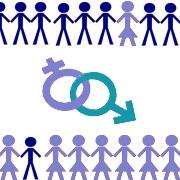
Gender mainstreaming is an (international) strategy to achieve gender equality. It is shorthand for saying that the impact of all policies and programmes on women and men should be considered at every stage of the policy or programme cycle - from planning to implementation and evaluation. This e-learning course aims to provide participants with a comprehensive knowledge of gender mainstreaming and gender analysis. It draws on best practice and case studies from around the world. The course also provides the opportunity to focus on a specific sectors or policy areas (such as, education, sexual exploitation and abuse, organisational development, or human resources) and for participants to employ this knowledge in their own workplace through an action research topic.
The first half of the course will focus on lessons learned in gender mainstreaming in various UN agencies, international non-governmental organisations, governments and programmes. In the second half participants will be introduced to specifical gender mainstreaming tools, including the use of gender planning frameworks, and several topical areas based on the interest of the participants. Critical analysis of current theory and practice is encouraged throughout the course.
This certificate course involves approximately 50 hours of reading, on-line working groups, assignments, webinars and interaction among participants and instructors, and is offered over an 11-week period. The course will integrate active and participatory learning approaches within activities and assignments, with an emphasis on reflective and collaborative learning. Participants will do the required reading, prepare interim and final project assignments, including case studies, and participate in group discussions and webinars with invited guest experts.
The maximum number of course participants is 25. Students who successfully complete the course will receive a Certificate of Participation. It is also possible to audit the course.
Course outline
Week 1: Gender and defining gender mainstreaming
Week 2: Gender integration framework
Week 3: Gender analysis
Week 4: Applying gender mainstreaming (small group work)
Week 5: Tools for gender mainstreaming and analysis
Week 6: Tools for gender mainstreaming and analysis (continued)
Week 7: Gender-based violence
Week 8: Gender mainstreaming in humanitarian action
Week 9: Applying gender mainstreaming (individual work)
Week 10: Benefits of gender mainstreaming
Week 11: Wrap-up & the way forward
For more detailed information and online registration: www.hrea.org/gendermainstreaming